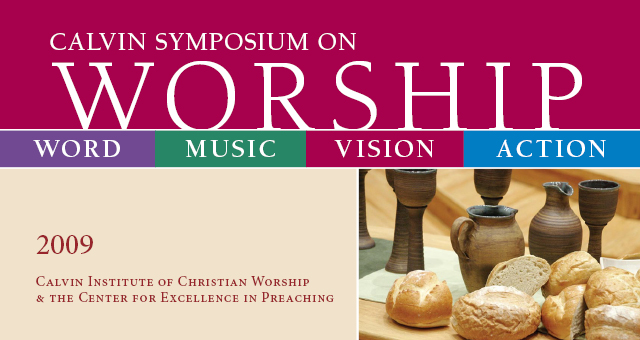Session Description
In the New Testament, the line "And he told them a parable ... " is as familiar and as redolent of promise as the line "Once upon a time ... " is in children's literature. Parables are the spine of Jesus' teachings, lending the gospel narratives strength and structure. Mark once went so far as to say that Jesus did not teach anything without telling a parable. So it is no surprise to find Matthew, Mark, and especially Luke chock-full of these intriguing stories. Yet we often forget their original impact. The New Testament scholar C.H. Dodd once proffered what has become a classic definition of a parable when Dodd said that a parable is a story, the meaning of which is sufficiently in doubt so as to tease the imagination into a new understanding. When we read the New Testament, there can be no doubting that Jesus' parables left most people, the disciples included, scratching their heads in confusion. Eugene Peterson describes parables as "narrative time bombs" that ticked away in people's hearts long after Jesus finished speaking, eventually exploding into an entirely new way of thinking about God, grace, and the kingdom. Today, however, we think we have the parables cased. They don't tease us into a new understanding, they don't confuse us or cause us to seek a new angle on our faith. Instead we read them to confirm what we think we already know. But perhaps those of us who plan and lead worship, who preach and teach, can find ways by the Spirit to revive Jesus' parabolic words. Perhaps even all these centuries later we, too, can be startled into a new appreciation for the glory that is gospel grace and for the wonder that is God's perpetually surprising kingdom. At this 2009 Symposium on Worship, we will use the imagination of skilled artists, the beauty of music, and the preached word to prod all of us who minister in the church to find fresh and vibrant ways to revive the intrigue of Jesus' parables. The Church lives off the nourishment of Word and sacrament. Whenever the words of Jesus come to us anew and with something of their original punch, we feast richly at the great banquet table of grace to which we are invited over and again each time we read the words, "And he told them a parable..."
This Worship booklet for the 2009 Calvin Symposium on Worship contains outlines for six services based on parables.
Conference Title
2009 Calvin Symposium on Worship
Event Date
1-30-2009
Event Type
Worship Service/Concert
Type (recording/text)
Text
Service Type
Service of the Word (and Table)
Subject Area
Worship
Topic
Worship Planning
Keywords:
parables
Upload Date
30-1-2009 12:00 AM
Recommended Citation
Calvin Institute of Christian Worship, "2009 Worship Booklet" (2009). Symposium on Worship Archive. 45.
https://digitalcommons.calvin.edu/uni-cicw-symposium/2009/allitems/45
Included in
2009 Worship Booklet
In the New Testament, the line "And he told them a parable ... " is as familiar and as redolent of promise as the line "Once upon a time ... " is in children's literature. Parables are the spine of Jesus' teachings, lending the gospel narratives strength and structure. Mark once went so far as to say that Jesus did not teach anything without telling a parable. So it is no surprise to find Matthew, Mark, and especially Luke chock-full of these intriguing stories. Yet we often forget their original impact. The New Testament scholar C.H. Dodd once proffered what has become a classic definition of a parable when Dodd said that a parable is a story, the meaning of which is sufficiently in doubt so as to tease the imagination into a new understanding. When we read the New Testament, there can be no doubting that Jesus' parables left most people, the disciples included, scratching their heads in confusion. Eugene Peterson describes parables as "narrative time bombs" that ticked away in people's hearts long after Jesus finished speaking, eventually exploding into an entirely new way of thinking about God, grace, and the kingdom. Today, however, we think we have the parables cased. They don't tease us into a new understanding, they don't confuse us or cause us to seek a new angle on our faith. Instead we read them to confirm what we think we already know. But perhaps those of us who plan and lead worship, who preach and teach, can find ways by the Spirit to revive Jesus' parabolic words. Perhaps even all these centuries later we, too, can be startled into a new appreciation for the glory that is gospel grace and for the wonder that is God's perpetually surprising kingdom. At this 2009 Symposium on Worship, we will use the imagination of skilled artists, the beauty of music, and the preached word to prod all of us who minister in the church to find fresh and vibrant ways to revive the intrigue of Jesus' parables. The Church lives off the nourishment of Word and sacrament. Whenever the words of Jesus come to us anew and with something of their original punch, we feast richly at the great banquet table of grace to which we are invited over and again each time we read the words, "And he told them a parable..."
This Worship booklet for the 2009 Calvin Symposium on Worship contains outlines for six services based on parables.



